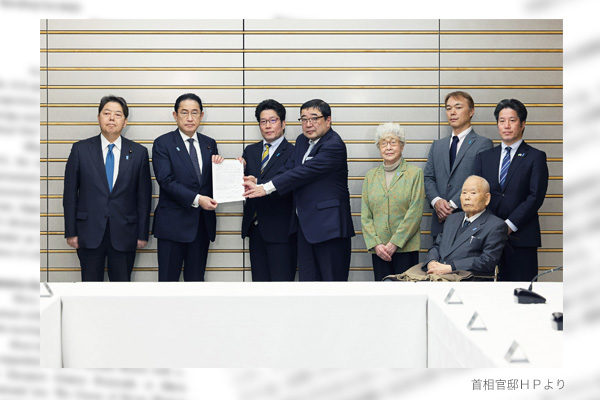In this column on February 19, I wrote, “(Japanese Prime Minister Fumio) Kishida may visit North Korea soon.” My comment was in reaction to a statement by North Korea’s de facto No. 2 leader Kim Yo Jong on February 15 mentioning the possibility of Kishida’s visit to Pyongyang. However, the media and many experts doubted the possibility, arguing that the statement conditioned Kishida’s visit: unless Japan makes the issue of North Korea’s abduction of Japanese citizens a stumbling block to the bilateral relations.
Signal from Kim Yo Jong
The media and many experts have misread the statement by Kim Yo Jong, a younger sister of strongman Kim Jong Un. The literal translation of the passage regarding the condition for Kishida’s possible visit to Pyongyang from the original Korean text is as follows:
“[If Japan] does not lay the already settled abduction issue only as a stumbling block to the prospect of bilateral relations, there will be no reason for the two countries not to become close, and the day of the prime minister’s Pyongyang visit might come.”
The word “only” here is translated from the Korean word “man.” The statement deliberately placed “man” next to “as a stumbling block.” Here lies Kim Yo Jong’s intention. Since the statement says “if the already settled abduction issue is not laid only as a stumbling block,” the issue can be laid as something other than a stumbling block. This means, for example, if the abduction issue is laid as a bargaining chip for the future, the prime minister can visit North Korea.
However, all major Japanese media ignored the important word “man” and reported the condition as follows:
NHK: “If the already settled abduction issue is not made a stumbling block to the bilateral relations…”
Asahi: “If the already settled abduction issue is not made a stumbling block…”
Yomiuri: “If Japan does not make the abduction issue an issue between the two countries…”
Mainichi: “If the already settled abduction issue is discarded as a stumbling block to the bilateral relations…”
Sankei: “If the issue of the abduction of Japanese is not deemed a stumbling block…”
Radiopress, which provides news materials to media outlets, also incorrectly translated the passage as “only if Japan does not lay the abduction issue as a stumbling block.” Here, it deliberately moved the word “only” before “if.” This completely erases the statement’s key point that the abduction issue can be laid as something other than a stumbling block.
Abductees’ families accepting the lifting of Japan’s own sanctions
On February 25, the association of abductees’ families and their supporting organization, including me, decided on a new policy: If the blanket return of all abductees is realized while their parents are alive, we will not oppose Japan’s provision of humanitarian assistance to North Korea and the lifting of Japan’s own sanctions on North Korea.
After having staged sit-in to oppose rice aid to North Korea, we decided last year not to oppose humanitarian aid, including rice. After having staged demonstrations to oppose the entry of the North Korean cargo-passenger ferry Man Gyong Bong into a Japanese port, we this year went so far as to say that we would not oppose the lifting of Japan’s own sanctions, including a ban on the ferry’s entry.
On March 4, we handed over the new policy paper to Prime Minister Kishida. I told Kishida: “The current move started last October when you told a public rally for the first time that there were time constraints on the abduction issue. This strategy is right. You vowed to take leadership in solving the issue. Please do your best.” The prime minister gazed back at me with intense eyes.
Tsutomu Nishioka is a senior fellow and a Planning Committee member at the Japan Institute for National Fundamentals and a specially appointed professor at Reitaku University. He covers South and North Koreas.


